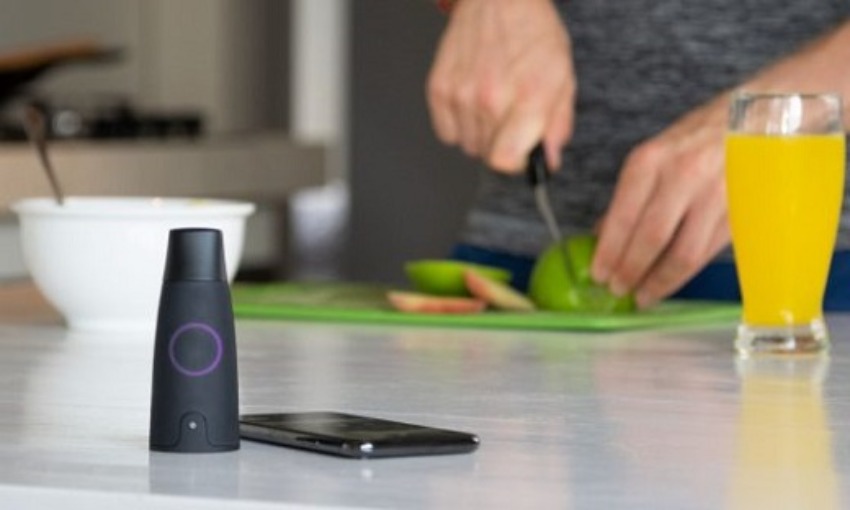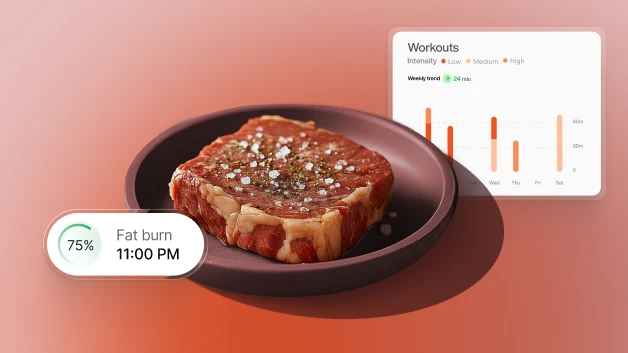Intermittent fasting re-examined: Can you fast too much?

Intermittent fasting can help people lose weight and achieve a healthy metabolism. If you intermittent fast to lose weight or stay fit, it’s important to ensure your fasts are effective and aren’t putting additional stress on your body.
With so many different fasting methods available, how can you know you’re not fasting too long? Let’s look at why over-fasting could lead to adverse health outcomes and how to take control of your fasts to optimize performance and achieve your desired results.
Can you fast too much?
There is such a thing as over-fasting, and it’s essential to listen to your body’s signals and adjust your approach as needed. Despite intermittent fasting’s potential health benefits, the popular 18:6 fasting regimen is not for everyone.
In fact, after analyzing over 1 million monthly metabolism measurements, we found that over 27% of users who fasted for more than 10 hours entered a carb-burn state (Lumen level 4/5).

This suggests the body overextended its fat-burning state, and the stress response was triggered, contrary to our initial assumption, which posited that more hours of fasting would lead to more fat burn.
When do your mitochondria begin burning fat during a fast?
The mitochondria, your cell’s powerhouses, begin burning fat during fasting1 after depleting their readily available energy sources—primarily your body’s carb stores in the liver and muscles in the form of glycogen. The exact timing of this transition can vary based on individual metabolism, physical activity levels, and dietary habits, with some people beginning to burn fat sooner if they have adapted to a low-carbohydrate diet or have a high level of physical activity.
The physiology of fasting: how much is too much?
Muscle mass and excessive fasting
While intermittent fasting can be beneficial when done correctly, it is essential to ensure that dietary plans are well-structured to meet nutritional needs and support muscle health. If the body is deprived of adequate nutrients for extended periods, it may resort to breaking down muscle tissue for energy, especially if caloric intake is consistently too low.
This catabolic state undermines muscle preservation and growth, and may lead to muscle loss over time. To prevent muscle breakdown, it’s essential to balance fasting periods with adequate protein2 and caloric intake, especially when exercising3.
Preserving muscle mass is important for weight loss, body recomposition efforts, and improving metabolic flexibility. Muscle mass is packed with mitochondria, so the more mitochondria you have, the more fat you’ll burn at rest and shift to carb burn when you need a quick energy boost.
The impact of over-fasting on glycogen
Glycogen stores play a vital role in fasting. When glycogen is depleted during fasting, the body shifts to burning fat for energy4. However, over-fasting can cause glycogen levels to get too low, and your mitochondria won’t have the reserves to provide energy boosts, leaving you feeling sluggish.
Additionally, constantly relying on fat for energy can make your body less efficient at using carbs, leading to quick weight gain when you eat carbs. It can also reduce athletic endurance and performance, particularly during high-intensity or prolonged physical exercise, as carbs are the preferred fuel source for these activities.
What is the optimal fasting range?
Understanding when your mitochondria start burning fat during an intermittent fast is key to optimizing fasting benefits without triggering a counterproductive stress response. For some, a 16-hour intermittent fasting schedule is optimal, while a 12-hour fasting window is best for others.
Measuring your metabolism throughout your fast is key to finding your optimal fasting schedule. For example, if you hit the 12-hour mark of your fast and measuring your metabolism reveals you’re burning fats, that’s a sign to keep going. If you measure your metabolism one hour later and it shows your mitochondria are burning carbs, that indicates you should break the fast and eat something.
What we can learn from the fasting habits of Lumen users
There isn’t necessarily an ideal, one-size-fits-all fasting range for everyone—-every person’s metabolism is unique. After analyzing the different fasting schedules of our users, we noticed there’s a lot to learn from their varying fasting windows. Our data shows more than half of Lumen users fast between 11-15 hours.

Fasting hour distribution among Lumen users
Less than 10 hours
A total of 12.6% of Lumen users fast for less than 10 hours and reach fat burn. Many of us unconsciously fast for this amount of time during a normal night of sleep. This fasting window can be achieved by having your last meal at 8 pm and having a coffee with milk at 6 am.
11-15 hours
The most common fasting window among users (64.9%) is 11-15 hours, with a fat-burn rate ranging from 37 to 42%. A popular method of intermittent fasting is the 14:10 ratio, in which you fast for 14 hours and consume all your meals in a 10-hour window.
16-20 hours
Our data shows 20.7% of users opt for a 16-hour fast or more with a fat-burn rate of 42-46%. The 16:8 fasting ratio often involves skipping breakfast and not eating your first meal until midday.
More than 20 hours
As our data science team predicted, the least popular method among Lumen users (1.8%) was the 20+ hour fast, where you eat all your meals in four hours or less. With this many hours of fasting, we observed that users didn’t tend to wake up in a fat-burn state at a higher rate than those who fasted 16-18 hours.

Find the intermittent fasting window that’s right for you
Lumen encourages intermittent fasting with a personalized approach that keeps your metabolic health in mind. By measuring your metabolism throughout your fast, you can find out exactly how long you should fast to reap the most benefits.
The goal is to fast long enough to shift your mitochondria to fat burn but not over-fast, which can cause your mitochondria to burn carbs from muscle mass as your glycogen levels dip too low. This indicates you’ve overextended your body’s fat-burning state and activated a stress response. Find your fasting sweet spot by tracking your metabolism and make adjustments as you go by using real-time biofeedback from your own body.
For more articles by Lumen experts, visit our intermittent fasting category.








 Digital download
Digital download 


